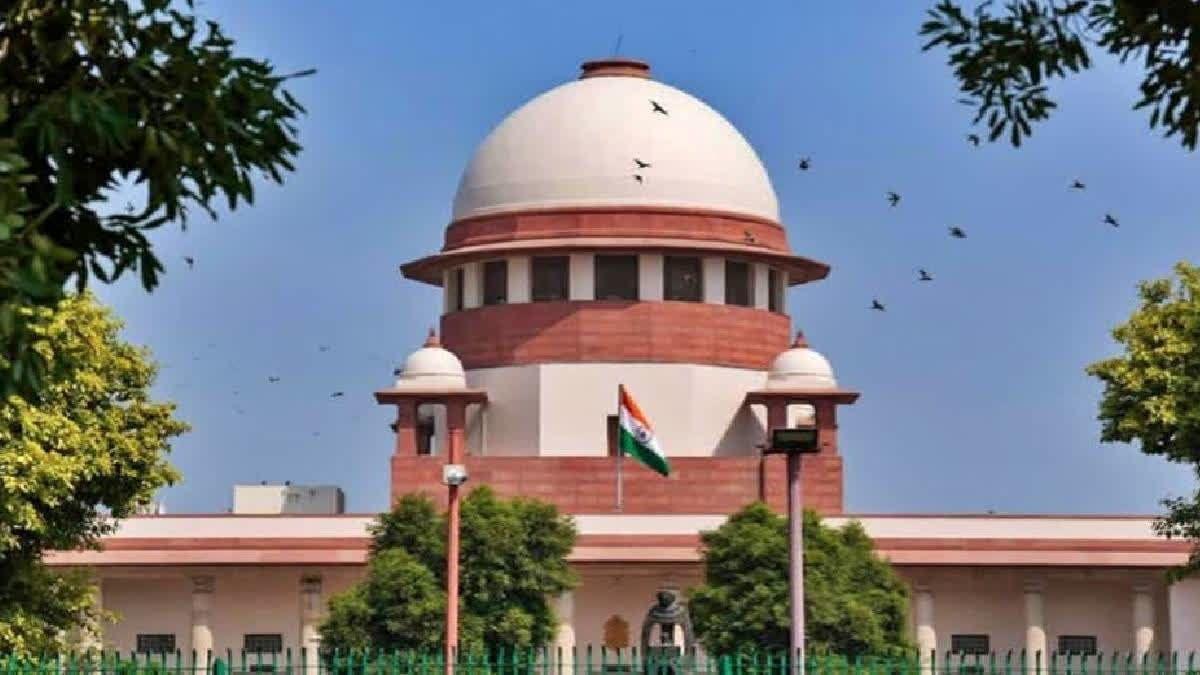New Delhi: The Supreme Court has upheld an order passed by the Madras High Court, which said that salaries paid to nuns and priests working as teachers, in aided schools run by the church, are subject to income tax. The apex court dismissed over 90 petitions from various missionaries to exempt salaried nuns and priests from paying income tax.
A bench led by Chief Justice of India D Y Chandrachud, on Thursday, said the money is given to the school in the form of a salary grant, therefore it cannot be exempted from TDS.
The CJI said, “It’s a salary which is paid to one of the nuns or a father. They don’t take it in their own coffers. That’s all.” Senior advocate Arvind Datar, appearing for some of the appellants, contended before the bench that the money is not paid to the schools, but goes directly to the diocese.
The bench, which was not content with the argument put forth by the appellants’ counsel, asked, "How will the government pay the diocese?...The government will never pay the diocese…”, and added that the government cannot contribute to a religion, therefore the government will pay to the school.
The bench, also comprising Justices J B Pardiwala and Manoj Misra, said because they say we have taken a vow of poverty, and added, “So, they would not retain the salary”.
The CJI said the organisation bills the salary to the father or the nun but pays it to either one of the sister organisations or whatever for charitable purposes. The CJI made it clear that TDS has to be deducted. The bench said the government says that this is our budget of, say Rs 5,000 crore for aided schools, and to this particular school, Rs 25 lakh is the grant in aid.
The bench added that the school will then say look, we will not distribute it to the teachers, but we will give it to the diocese. “In the hands of the school, once it comes, it’s blocked by the salary for these teachers,” said the bench.
Datar contended before the bench that it does not happen like that, and, elaborating on the process, added that it never comes to the account of the school. “I can bring the account and show you… What used to happen is because of a CBDT circular, because these priests don’t pay provident fund...The money goes to the diocese”, Datar said.
The bench was informed that the diocese is registered as a charitable trust under Section 11 of the Income Tax Act. Datar stressed that they have to disperse 75 percent of whatever money they collect for charitable purposes, and the priest gets nothing. He further added that for the last 85 years, the priests were never taxed.
The bench said, for example, a Hindu priest said that I would not retain the salary and would give the money for doing puja to an organisation. “But if the person is employed, he gets the salary, tax has to be deducted. The law is common for everybody. How can you say that it’s not subject to TDS?”, said the bench.
The appellants’ counsel cited judgments of the Madras High Court and Kerala High Court, saying that if a priest dies in an accident, monetary compensation goes to the diocese and not to the family.
At this juncture, the CJI said there is a reason for it because once you enter an ascetic order, that person has completely cut off all bonds with the natural family. “When that person dies, that family will have no claim for compensation because that person at the point of renouncing the family has cut off all bonds with the family, and they join the order…”, said the CJI.
A single judge of the Madras High Court had ruled in favour of the priests and nuns. The high court judge had said that their salaries cannot be subject to income tax as the money is not accrued to them but only to the diocese. The Income Tax Department filed an appeal against this order before a division bench of the high court, which reversed this order in 2019. This order was challenged in the apex court.
Read More



